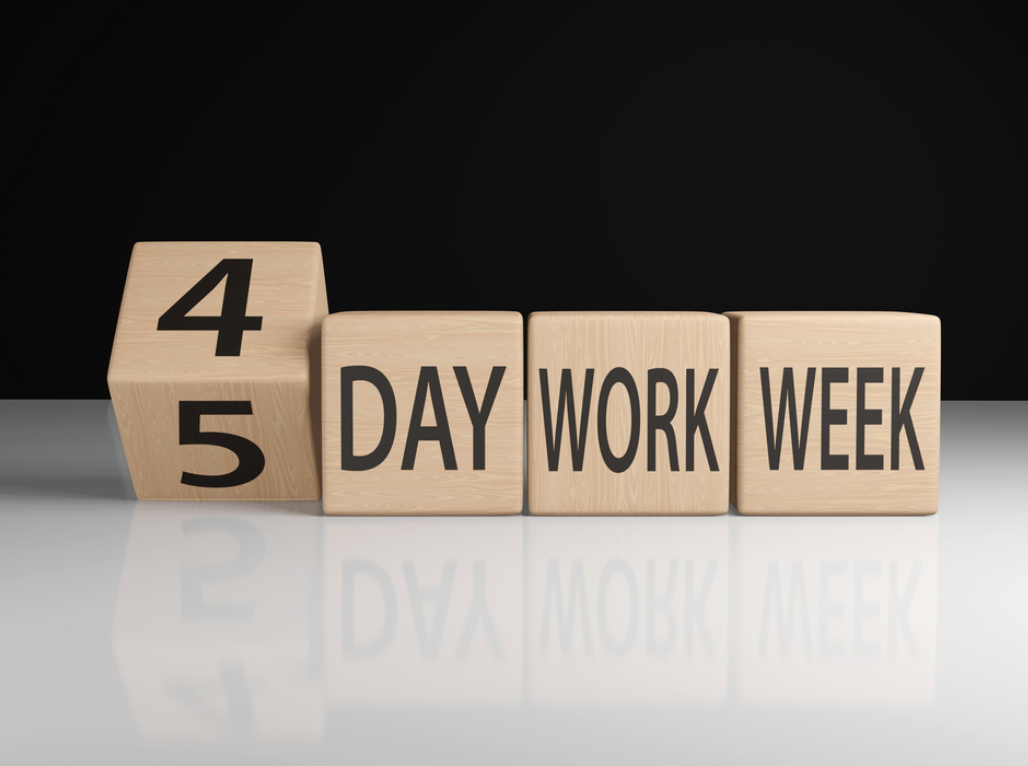This ingredient is necessary if you want to be a workplace of the future

Recent posts

From Firefighting to Innovating: 4 Strategies to Carve Out Space for Creativity
Zoe Aitken • 29 August 2024

COORDINARE’s Four-Day Week Success: 3 Powerful Lessons You Need to Know
Charlotte Rush • 29 August 2024

Everything I thought I knew about Work was Wrong: My Eye-Opening CEO Journey
Tina McIntosh • 1 August 2024
This week I have been thinking about the future of work. Like anyone, I turned first to Google. When I was overcome with the flood of warnings of a post-pandemic world where we live on Zoom, wearing ‘set’ tracksuits and never again returning to the office, I turned to my trusty network to ask their thoughts on what is needed to be a workplace of the future. In conversations with friends who I would argue work in some of Australia’s leading workplaces, I began to hear a common sentiment. And the hints of a story we’ve all heard before. The story of the complacent market leader.
One friend works at what I would argue is THE Australian workplace of the future. When I highlighted this, they shared an interesting observation. While this company might make great products, hire and retain the best talent and listen to their customers, a willingness to adapt and learn fast enough was missing. They are great, but maybe they are too great to see the future threats coming their way. It was an observation reminiscent of the stories of Kodak, Blockbuster or Nokia.
This is not a surprise. Since the 1997 publication of the late Clayton Christensen’s book ‘The Innovator’s Dilemma’, management experts and business leaders have become well versed in understanding why and how disruption occurs. But the problem persists. Incumbents get disrupted. New entrants see and take advantage of changes in technology to provide (often) cheaper solutions to new markets of customers. And as our partners at Innosight highlight, the reason why is that “dealing with disruption is not just an innovation challenge; it is a leadership challenge”.
Leaders are responsible for setting the strategy and focus of an organisation – where do we want to play and how do we want to play there. They are also responsible for ensuring their people can do the work to achieve those business goals – providing clarity, motivation and supporting their people through roadblocks that inevitably arise.
The responsibility of leadership is changing as organisations become more network oriented, rather than hierarchical. And as we move further away from traditionally structured organisations, leadership will no longer be the sole responsibility of your executive leadership team (or whoever sits at the top few levels of your organisation). Instead, at some point, almost all of your employees will need to ‘lead’. The importance of quality leadership – leaders who can provide laser-like focus on the right goals and enable their people to achieve those goals – will increase as this skill disperses across greater numbers of employees, in a greater number of contexts. Therefore, the ‘leadership challenge’ of disruption is likely to become even more of a challenge. A challenge faced by 500 people is arguably larger than a challenge faced by 50 people.
So, how do we create organisations that can adapt and continuously learn? How do we address the ‘leadership challenge’ so that organisations can change now and thrive in the future? We can think about it from a few perspectives:
Do your teams have a process to adapt?
- For example, when the pandemic hit, did you have a clear step-by-step process that enabled you to adapt and solve new problems your customers were experiencing? We recommend our best-practice innovation process for this.
Are you continuously adapting your products and services?
- Businesses need to use this process to adapt their products and services. This means adapting your existing products but also coming up with new ways to bring value to customers. And remember, ‘customers’ can be both external and internal.
Do your people have the ability to adapt?
- When faced with this process and the opportunity to bring new products and services to life, do your people embrace that change? Do they jump on board willingly, adapting their daily habits and behaviours? After all, the biggest challenge of change is not technology, it’s people. By approaching change from a people perspective, your organisation is far better equipped to adapt.
If you have a project team, an organisational initiative or a group of ‘leaders’ who need help adapting right now, let us know. At Inventium, we have the tools and the process to help your people adapt – whether that be by working through an opportunity to bring new products/services to your customers, helping leaders to lead for adaptability, or helping a specific change-initiative at your organisation succeed in effecting real behaviour change. If it requires change in your products, services, or people – we can help. We do this via consulting and mentoring in relation to a specific project or goal. And thanks to COVID, we’ve greatly reduced the access barrier by doing this all virtually, meaning that we can help you wherever you are.